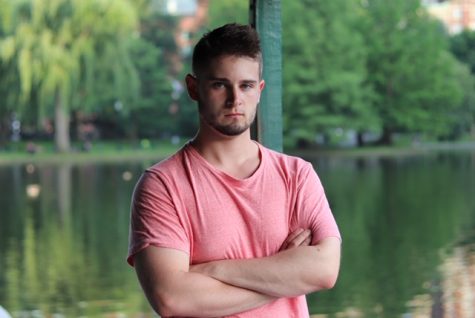Every year, a new class of students flock to Boston from around the globe to take their first steps in college; for some students, their first steps ever on U.S. soil.
Approximately 153 international freshman and 58 international transfer students will start at Suffolk University this year, according to current Director of International Admission Rafael Muroy in an interview with The Suffolk Journal.
Last year 1,431 international students attended Suffolk according to Suffolk University’s website; 23 percent of all undergraduate students on Boston and Madrid Suffolk campuses were international students. The top countries where international students came from this year are Vietnam, China, Venezuela and Saudi Arabia, according to Muroy.
Suffolk’s international student population usually lies between 18 and 24 percent in the past two years, while the national average is around 9 to 12 percent, according to Muroy. Suffolk’s international student percentage ranked No. 7 in the nation last year, and ranked No. 5 the year before. Suffolk always thrives for a diverse community.
“I think it’s part of our mission, I mean, we’ve always been a school that considers itself an international university. We strongly believe that we want to bring in a diverse perspective,” said Muroy. “We can’t rely on just recruiting students from Massachusetts or just the surrounding area.”
Suffolk’s student body consists of many nationalities in and of itself; in 2016, there were 71 countries represented in Suffolk’s student population.
There are a lot of challenges that international students must face upon their arrival, such as distinctions in cultural norms, language barriers and navigating a brand new place, although, some international students arrive speaking more than one language.
“Some of them come with good English language abilities, but they haven’t been used to doing everything in English,” said Muroy. “Getting probably used to the American style of teaching is something they have to adjust to.”
Homesickness is also a problem international students face, being much further away from home than American students are.
“You’re talking a homesickness factor that is tough to encounter because home is not even like an hour plane ride away,” said Muroy.
American students grow up interacting with one another differently than international students do in their respective countries. Some international students say the social dynamic of America is entirely different from what they are used to.
“Some things I felt that were normal is not here,” said Ruya Caglar, a freshman who grew up in Turkey. She has visited the U.S. before coming to Suffolk and she has family in Texas. “This is a little bit different for me, like how everyone acts…I haven’t had any problems making friends or anything.”
Along with the culture shock, the laws in the U.S. differ from the laws international students see at home.
“Here you get to voice your opinion,” said Calgar. “My father’s best friend right now got put in jail last year because he had the smallest comment about the [Erdoğan] regime.”
Other students feel as Boston, and its people, speak more freely.
“People are very blunt; they’re very open, and very expressive about what they think,” said Jeremiah Fernandes, a sophomore Media and Film major studying abroad from the U.K. He has never lived in the United States before attending Suffolk. Prior to coming to the U.S., Fernandes studied at the University of Westminster in the U.K., where he found the people he encountered were “very reserved.”
Students who come from vastly different living situations often have a more intense adjustment to city life and the different types of people in America, in addition to the social culture of the United States. The switch from living in other countries, and moving to the United States, can instill culture shock.
Mario Lombardi is from Peru, but lived in Miami before moving to Boston. He is a freshman studying Business at Suffolk.
“The US is much more diverse in culture, whereas Peru is majority Peruvians,” said Lombardi in an interview with The Suffolk Journal.
Though Suffolk is open to students on an international scale, prejudice is still an issue.
“The school is very open and understanding, but they can’t control everyone else’s ideas,” said Caglar.
International students, along with many other freshman undergraduates, could agree that making the move to Suffolk introduces the struggles of living on their own for the first time. Whether it’s in dorms or off-campus living, the adjustment for international students, and domestic students alike, helps them become more independent as people as well as students.
“I have more freedom, responsibilities, and challenges to face by myself,” said Lombardi.







